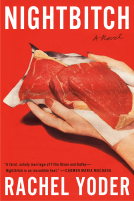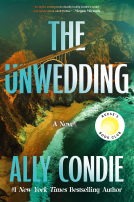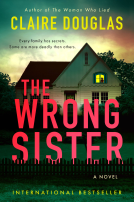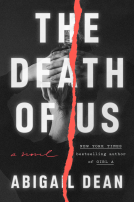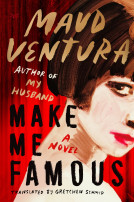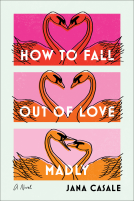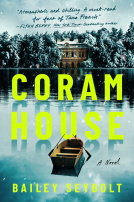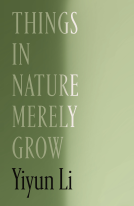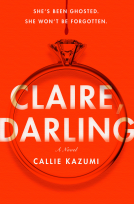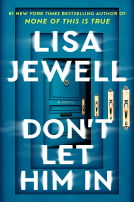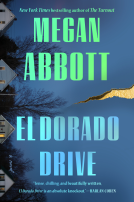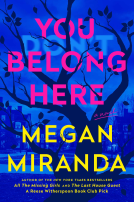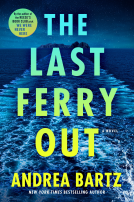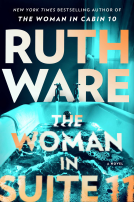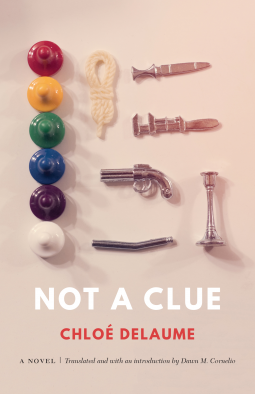
Not a Clue
A Novel
by Chloé Delaume
This title was previously available on NetGalley and is now archived.
Send NetGalley books directly to your Kindle or Kindle app
1
To read on a Kindle or Kindle app, please add kindle@netgalley.com as an approved email address to receive files in your Amazon account. Click here for step-by-step instructions.
2
Also find your Kindle email address within your Amazon account, and enter it here.
Pub Date Dec 01 2018 | Archive Date Dec 31 2018
Talking about this book? Use #NotAclue #NetGalley. More hashtag tips!
Description
Masterfully juggling an omniscient narratrix, an accusing murder victim, at least six possible suspects as well as their psychiatrists, and a writer who intervenes by refusing to intervene, Delaume uses the characters, weapons, and rooms of the board game Clue to challenge—sometimes violently, sometimes playfully—the norms of typography, syntax, and narrative conventions.
Advance Praise
Praise for the original French edition:
“In response to lovers of ready-to-write fiction who say ‘to write a good novel, you have to . . . ,’ Chloé Delaume offers ‘bruised’ syntax, with the barest minimum of punctuation. Like a lace maker, she stitches together words, tears apart adjectives, tugs on adjectives, swells with parenthetical asides, and drenches her prose with equal doses of references to mythology as to pop songs.”—Émilie Grangeray, Le Monde
“With dazzling virtuosity, with its pirouettes, winks, and dizzying mirrored reflections, the final third of the novel in particular brings to mind both baroque esthetics and The Lady from Shanghai’s hall of mirrors. The whole thing is as exhilarating as it is moving.”—Catherine Henry, Benzine Magazine
Available Editions
| EDITION | Other Format |
| ISBN | 9781496200891 |
| PRICE | $19.95 (USD) |
| PAGES | 276 |
Links
Featured Reviews
 Rachel R, Reviewer
Rachel R, Reviewer
I thought this book was very clever. A sort of old school mystery inspired by Clue. I felt like the writing was a little clunky at times but that could have been due to the translation.
 Jeanne O, Reviewer
Jeanne O, Reviewer
The author’s use of language is exquisite—and tiring. Nothing is really a plot I found yet the writing kept me reading until I just gave it up.
 Kathleen D, Reviewer
Kathleen D, Reviewer
'You’re all even more sealed off from your environment than from yourselves, have been for a long time.'
We are told in the beginning there are six patients and ‘you killed me. One of you or maybe each of you.” The murdered is Dr. Black, each of the accused patients at Paris’s St. Anne’s Hospital is gathered to play a life-size game of clue. The murderer really isn’t important, the novel lends itself to unraveling minds, and the writing can induce nervousness, anxiety, depression, confusion, anger, paranoia the list goes on. How to trust minds that don’t even trust themselves? This is not an easy read, and may well slip through the cracks of reader’s minds, myself included. I think I get it, some of it, but confess to being lost here and there. This is challenging reading, certainly creative writing that plays with and bites you in turns. I was exhausted, just as exhausted as the wounded characters. The author has lived through tragedy herself, I won’t go on about that, though certainly it must lend itself to her work as anything in life touches us, from tragedy to the most mundane moments, if you’re curious just look her up.
I got to the point that I didn’t care about killer, murderer and found I was far more invested in the why. Why is each patient sick, who brought them here or why did they come of ‘their own volition’. What about life disturbed this ‘chorus of misfits’ so much that they broke? There is a lot to trudge through, and if you aren’t one who reads literary fiction, who accuses certain books of being ‘too wordy’ then move along. “In her head, Aline was talking loud. In your head it’s always very easy to talk so loud you bother yourself.” There are certainly gems, beautiful writing between these pages. I’m not sure I’ve grasped the writer’s purpose but there seems to be any manner of meaning one can find.
Each patient brings their damage to the table, to the game. Life has had its way, and the result lies in forgetting, vacancy, or best yet becoming a revisionist. Aren’t we all, in our own precious way revisionists? Some look at themselves and are horrified, maybe it is better not to look at oneself too closely. One of my favorite lines “I can feel the word solitude.” Solitude not a horror for the patient, but a comfort, a necessity. One of the b&l’s (The Bipolars and the Like) goes on to discuss the torment of memories, wanting to be emptied out. To express the pain of not wanting to accept the particular body given, well… it’s hard not to the polish that little nugget of wisdom. To not understand in some circumstances that with so much internal struggle, you are bound to be swallowed by tidal waves. It’s eye-opening to think about the difference between temptation and those with illnesses they don’t chose. Never being able to avoid their mental torment as an alcoholic or drug addict can deny themselves (if even for a moment) their fix. Those with their poor polluted brains, their vanishing or rotting memories gathered together, afraid of who they are in the outside world, suspects, pariahs, discarded for your reading pleasure. Most didn’t have a say in their pollution, their fog.
Then there is the Omniscient Narratrix, a ‘psychological harassment’ to all fictional characters who should really be charged with a crime too, all those ‘repeated offenses’ against characters just trying to live, much like real people, without judgement or humiliation. A god, who wants to manage its cast, make them be better or worse than they are. Oh the hell of literature! Then there is the writer who won’t interfere, laughable because that’s all writers do is interfere. The characters in this novel are in revolt, and refuse to be managed! There will be no established form, this book is inhabited by characters that want to be left alone, to simply exist whether worse for wear or not, and remain unimproved if they so chose. Not A Clue thumbs it’s nose at how we say things, and Delaume disturbs the text, shakes things up. She is testing narrative conventions, breaking out of themes, toying with the setting, blowing up the plot because I am still not fully certain of the plot here. It works but it also confuses the hell out of you, or maybe just me.
If you want to read something wildly different, this is it. I liked it and at times found it aggravating, sort of like my own life. For me, room I want to visit is what is real for the patients, not for arrogance of repairing them but simply to see their perspective. Not A Clue certainly is a unique read, though won’t be everyone’s drug of choice, ha.
Publication Date: December 1, 2018
University of Nebraska Press
 Samantha O, Reviewer
Samantha O, Reviewer
Six psychiatric patients all suspects in the murder of their doctor- Dr Black. A modern day Clue- different weapons, different rooms, different stories. A fanstastic whodunnit mixed with a political underbelly.
Masterfully juggling an omniscient narratrix, an accusing murder victim, at least six possible suspects as well as their psychiatrists, and a writer who intervenes by refusing to intervene, Delaume uses the characters, weapons, and rooms of the board game Clue to challenge—sometimes violently, sometimes playfully—the norms of typography, syntax, and narrative conventions.
While reading this, I got the traditional Clue feel from it. Not A Clue was about a life size game of Clue with six people trying to solve a murder. It held my interest enough to finish it. I didn't love but I didn't hate it either. It was a different kind of story, that's for sure!
Thanks to #NetGalley for the ARC of #NotAclue
Pub Date: 01 Dec 2018
Despite being very well written for the most part, the novel doesn’t quite meet its ambition. The book has a number of characters but there is only a limited focus on a couple of them which did get rather annoying at times. Feel the novel would have been better without the Clue/Cluedo association as it set false expectations.
With thanks to Netgalley and the University of Nebraska Press for the ARC.
Translated from the original French, Not a Clue is a life size game of Clue involving six psychiatric patients. Each character takes on the persona of one of the Clue pieces, is placed in one of the rooms on the board, and has possession of one weapon. Each are accused of killing Dr. Black.
As a fan of the game Clue, I was thrilled for the chance to review a copy of Not a Clue, which is set to be released December 1, 2018. I was expecting something fun and a little bizarre since the suspects are psychiatric patients. However, what I got was a dizzying compilation of six characters with various psychiatric problems, an interfering author who repeatedly states she is unwilling to interfere, an omniscient narrator who doesn't actually do a good job of it, and Dr. Black who apparently speaks to us from beyond death.
On one hand, I was a bit in awe of this book. It's unique and pushes boundaries. Back in college, I read House of Leaves, an experimental horror book by Mark Z. Danielewski. I was intrigued and delighted by the experimental quality of the writing and layout, but honestly have very little recollection of what the heck it was about. I was equally delighted by the writing in Not a Clue. Even though it was a little difficult to get into with the incredible dearth of punctuation, I was nevertheless interested in how this book was written. Psychological definitions and explanations were woven throughout. Even though it made the book feel a little choppy, I still appreciated it as a former psychology student, especially since it made complete sense when it was injected. The character sketches were amusing and somewhat thought-provoking and sometimes it was difficult to tell what was real and what was fictional in each person's life.
On the other hand, this book also grated on my nerves. As the story went along, I was a little dismayed when I reached the halfway point and had only met two of the suspects. They were both well-thought out and very well developed, which made me wonder if this book was maybe incomplete or if the remaining four suspects were only going to be glossed over. In the end, I was disappointed at the treatment the last four characters received, confused by the officers that were occasionally interjected, annoyed with the omniscient narrator who didn't seem well-liked, and started to wonder if the author either ran out of steam while writing and that's why only the first two suspects were well-developed or if the novel was meant to go that way. After finishing the book, I'm still not sure.
I was much more invested in the first half of the book and just wanted the second half to pass as quickly as possible. I very much enjoyed how the first two characters were fleshed out, but the pattern was the same for all six of them. It became tiring and repetitive and, by the last one, I had little interest in getting to know them, not that they were very well developed, anyways. But with all the changing characters and the annoying omniscient narrator, I just wanted the book to end.
The idea for the book was interesting and was what drew me to it. The game of Clue and six psychiatric patients? Yes and yes. I was expecting a wild and bizarre ride. What I got was mostly just bizarre. I appreciated what the author was trying to do and greatly enjoyed her boundary pushing, but I was quite tired of it by the end and am still left wondering how the game actually played into the story. I get that the suspects, rooms, and weapons were involved and the characters more or less correlated with the game's characters, but the game in the story never felt anything more than flimsy and I probably would have enjoyed it without the overlay of the game.
In the end, I have my doubts as to whether or not Dr. Black was actually killed. Actually, I still have no idea who Dr. Black is/was and why he might have been killed. Then again, the why has never really been a part of the game. And I really didn't care that he might have been killed. I also, in my disgruntled moments, think the author's character is the one who was killed. Gee, if I were one of the six patients and had to make do with how my story was told, I might be willing to off her myself.
Not a Clue isn't a terrible book. It was intriguing and definitely different. It's well worth a look, but be prepared for a strange ride that may or may not leave you feeling fulfilled.
Thank you so much to NetGalley and the publisher for a copy of this book in exchange for a review.
Post Date: 11/30/18
Blog: https://thelilycafe.wordpress.com/
Link to post: https://thelilycafe.wordpress.com/2018/11/30/book-review-not-a-clue-by-chloe-delaume/


